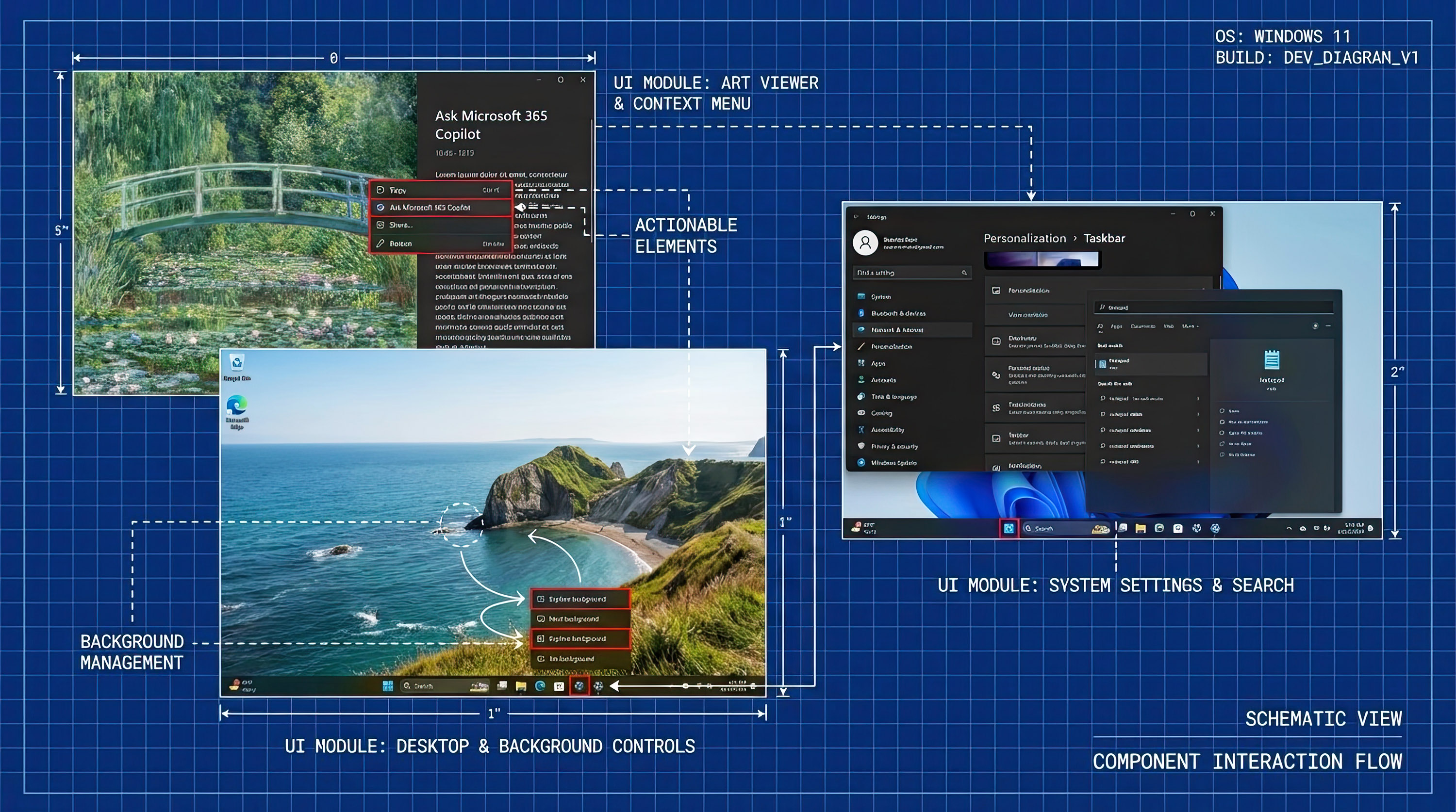Twitter talks about the design of its universal app for Windows 10
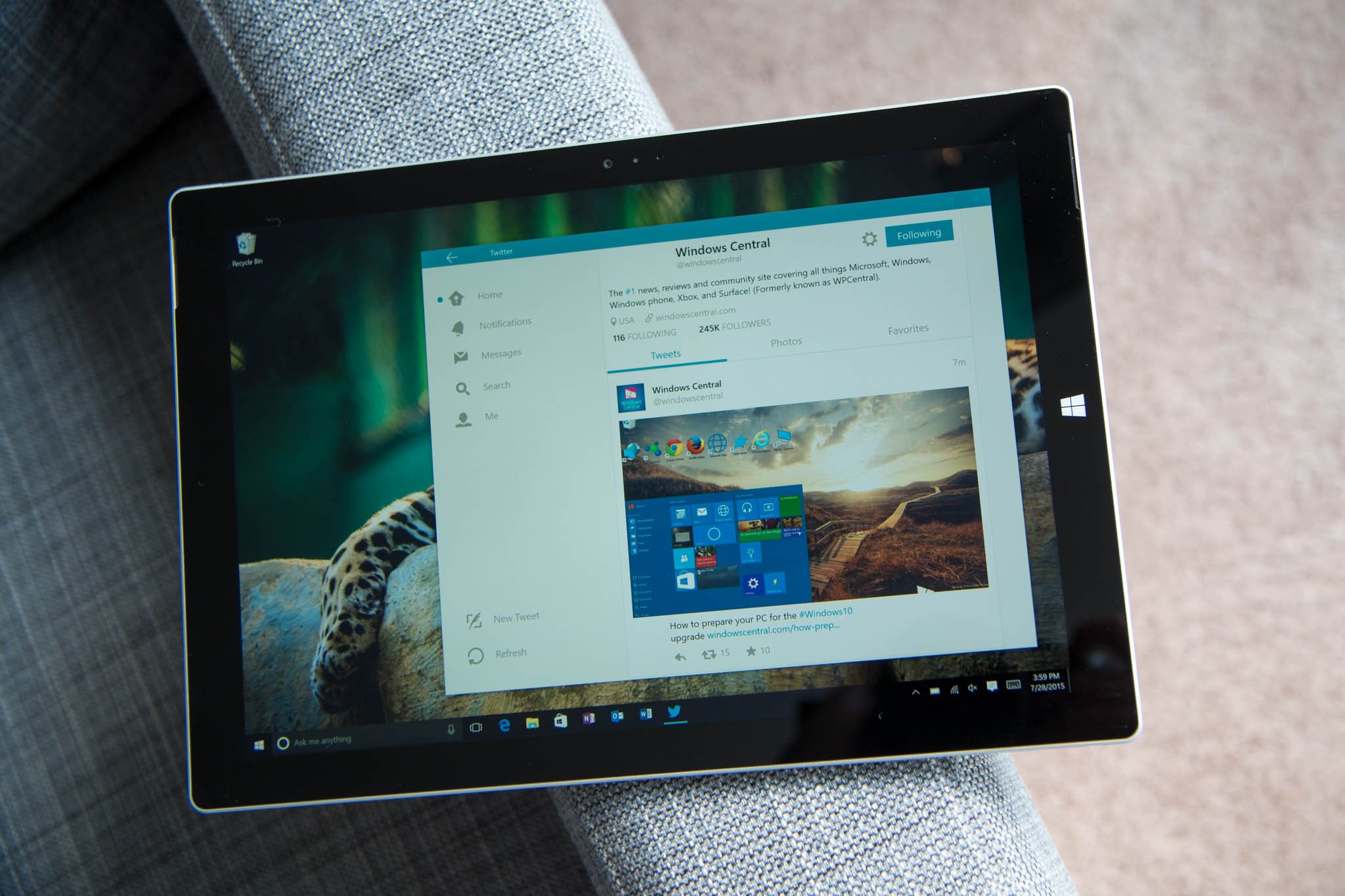
Twitter rolled out its app for Windows 10 earlier this week, featuring design changes that tie in with Microsoft's latest OS. Twitter mentioned that its goal was to mimic the principles of Windows Phone's "personal, relevant, and connected" design, starting from the login page:
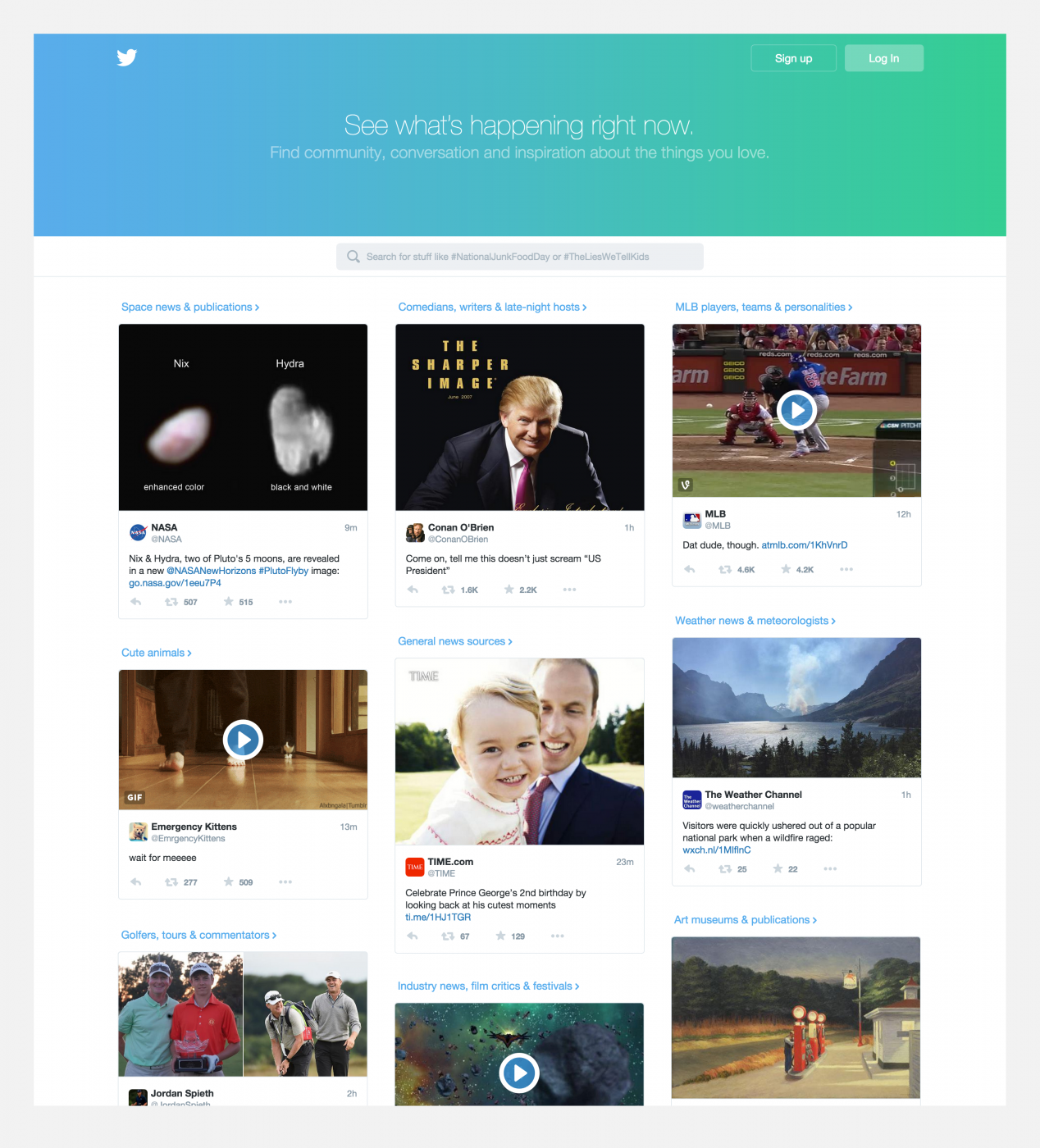
Initially, the design team at Twitter — which includes two designers that worked on the Windows Phone design team at Microsoft — decided to go with accent colors for the left pane to match that of Windows 10, but that decision was struck down as it was "pretty overpowering."
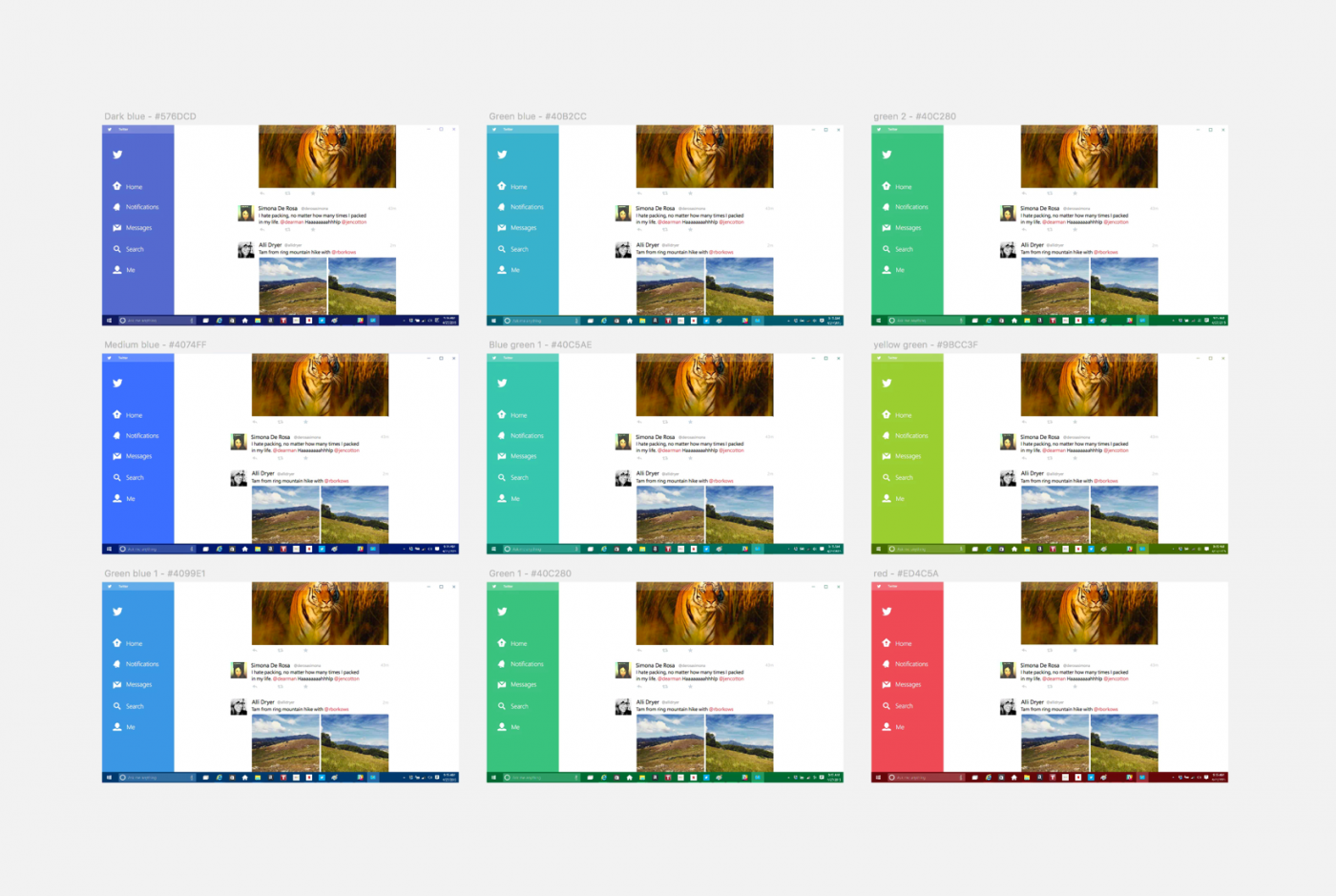
Instead, the app comes with a dark grey color option along the lefthand side. Accent colors are now used to showcase current view as well as links, as seen below:
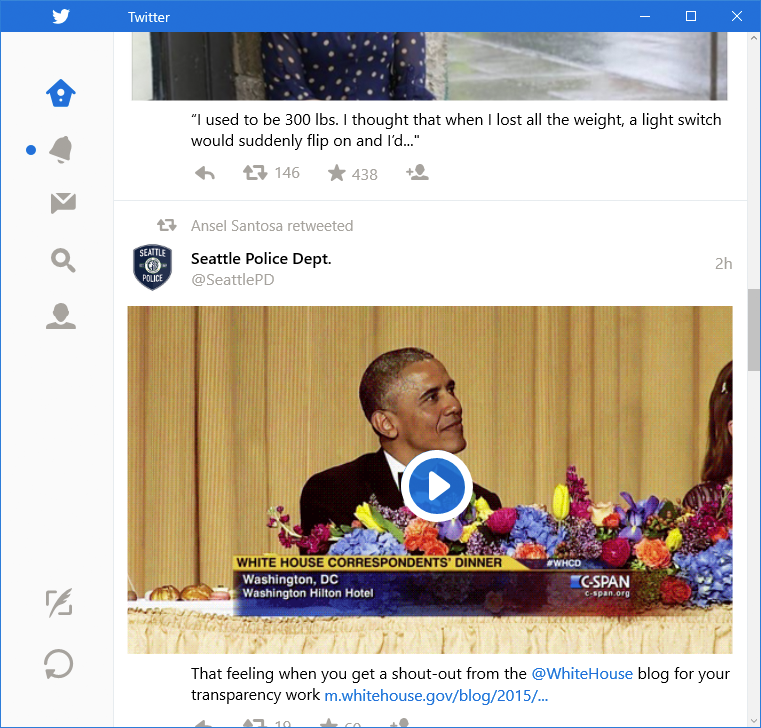
The microblogging service's design team also looked at ways to engineer the app to work on a wide variety of screen sizes, from phones with 4-inch screens all the way to devices like the Surface Hub:
We could scale the timeline to the entire width of the window, meaning giant and often blurry scaled up images on big screens. Another option we explored was using multi-column layout, similar to what we do with TweetDeck. A third approach explored a more web-oriented approach that places the timeline in the middle with white space on the sides.
Twitter also looked at setting a fixed width for the window size (like the Mac client), but ultimately decided to go with a "fixed timeline width in the middle, and we put special attention into making it flex appropriately as the window gets resized."The design team at Twitter explored several combinations in terms of the kind of content to display on the Live Tile, with the final iteration designed to showcase the most relevant information:
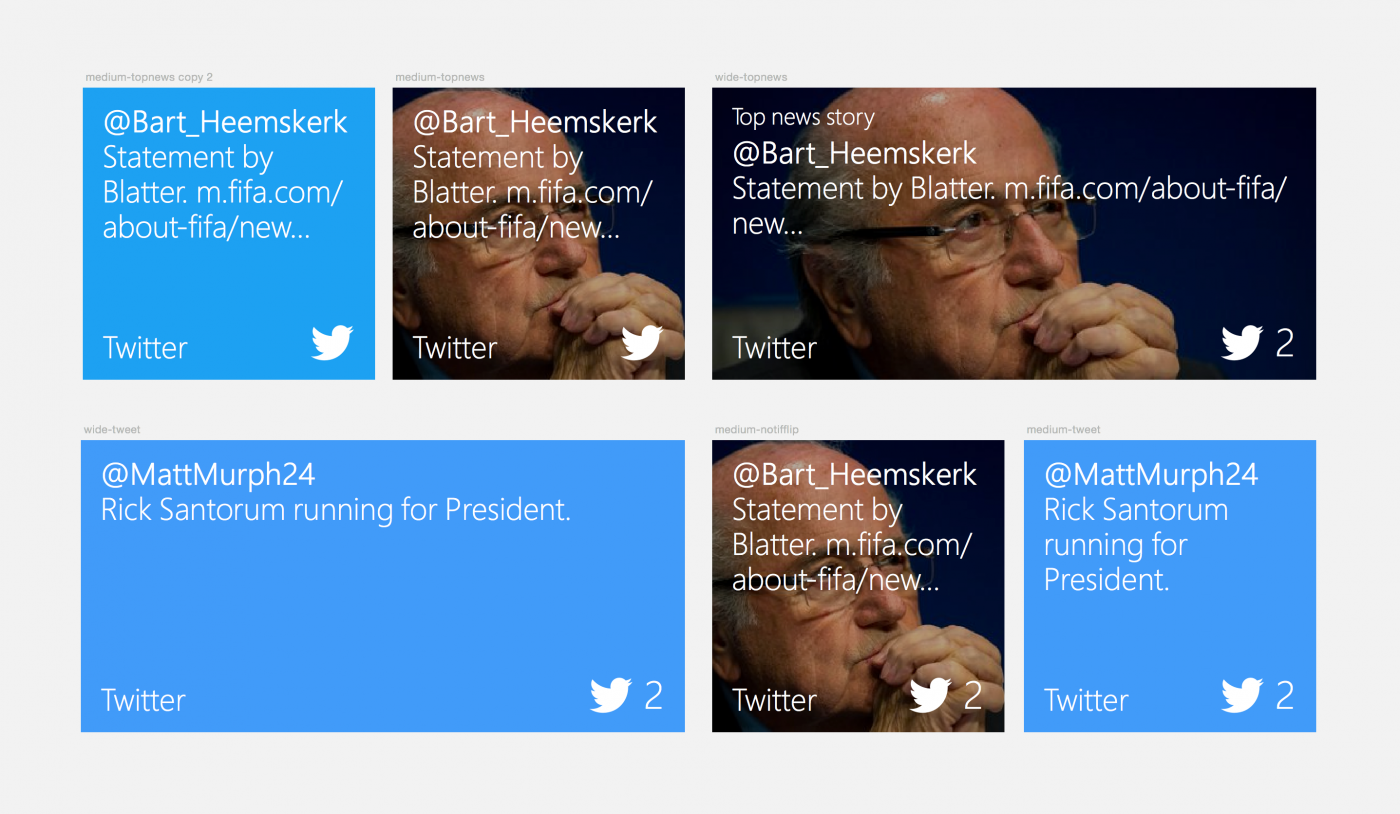
While the app is functional, it lacks features power users are looking for, such as pull to refresh (you have to click the refresh button to load new content), ability to quote RT and location info.
Twitter is interested in feedback, and is actively engaging with the community on how it can improve its design. Got something to say about the changes you'd like to see? Let Twitter know by using the hashtag #twitterforwindows.
All the latest news, reviews, and guides for Windows and Xbox diehards.
Source: Twitter

Harish Jonnalagadda is a Senior Editor overseeing Asia for Android Central, Windows Central's sister site. When not reviewing phones, he's testing PC hardware, including video cards, motherboards, gaming accessories, and keyboards.
